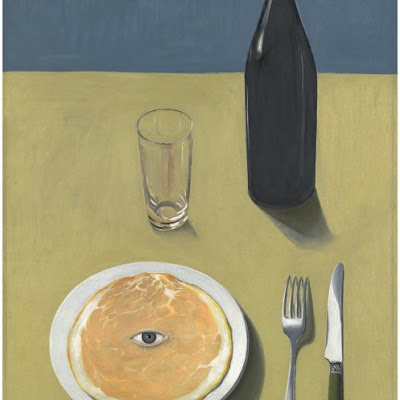NOTE: Try to read as much of Part Two as you can, though I understand if you don't have time to finish it. Since we only have two days left, I want to read slightly larger chunks of the novel than we normally would. But again, I'm not worried about you finishing the book--just getting most of it ready before Thursday.
Remember the Final Exam Paper is in the post below this one if you lose your hard copy.
Answer two of the following:
Q1: What do you think drew Julia to Winston in the first place? Is she truly in love with him, as the original note says? Are we meant to trust her words and motives, considering that she's clearly a very accomplished actor?
Q2: For all his attraction to Julia, there are a few things that trouble Winston about her, namely that she takes no interest in history or anything about the Party that doesn't immediately relate to her. Why does this trouble him, and what might this say about the younger generation that grew up with the Party in charge?
Q3: Why does O'Brien give Winston a copy of Goldstein's book, "The Theory and Practice of Oligarchical Collectivism," which Winston had feared was an urban myth? What does he--and what do we--learn from his reading of the book? Does it answer the why beyond the how of the Party?
Q4: Writing about the first time he has sex with Julia, Winston observes, "Their embrace had been a battle, the climax a victory. It was a blow struck against the Party. It was a political act" (Chapter II). How could the mere act of sex be a political act, and why does he love the idea that she's had a great number of sexual partners? What does this prove for him?




.jpg)












.jpg)
